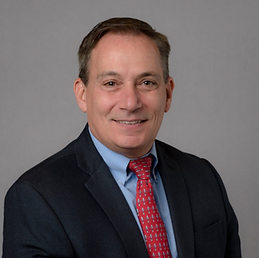It is a tremendous honor for me to welcome you to our department and the Emergency Medicine Training Program at NewYork-Presbyterian Brooklyn Methodist Hospital. I had the opportunity to launch the residency program in 1997. Since then, I have had the pleasure of watching us grow into one of the strongest three-year residency programs in the country.
A major part of the success of our training program is related to the socio-economic and ethnic diversity of our community, as well as the high acuity of the patient population that we serve. Our training program is designed to incorporate the unrivaled patient resources of our large urban community hospital with the expansive academic resources of a premier dual university-based healthcare system.
The program provides each resident with an essential knowledge base in all aspects of Emergency Medicine, including clinical practice, teaching, research, and administration. Our fellowships allow residents to gain insight into specialized areas of emergency and provides an opportunity for residents to develop individualized areas of interest.
Our faculty is diverse in both background and expertise. We have recognized experts in public health, EMS, ultrasound, operations and administration, international emergency medicine, toxicology, and medical education. Each resident is paired with a faculty member who serves as a mentor, monitors the resident’s academic progress, compliance with program requirements, and helps ensure the resident’s well-being.
Our residents also come from diverse backgrounds and regions of the country, but share exceptional success and commitment to our specialty. Residents are provided with skills to enrich their careers through scholarly activity, research, and lifelong learning of evidence-based medicine.
Our mission is to prepare graduates for all avenues of practice in emergency medicine, and to excel in education, research, wellness, and service. Our graduates span the spectrum of careers, from specialists practicing in university academic settings, to community hospitals physicians in urban and rural practice, to fellowship trained subspecialists and researchers.
I hope that you find our program to be the right match for you. As the founding Program Director, this is my baby. I am excited to introduce you to our “EM Family”. I look forward to meeting you.

MESSAGE FROM OUR PROGRAM DIRECTOR

Theodore Gaeta, DO, MPH
Program Director & Vice-Chairman for Academic Affairs
Associate Professor of Clinical Emergency, Medicine Weill Cornell Medicine
What sets us apart?
Our clinical learning environment provides residents with an outstanding experiential opportunity, with particular emphasis in critical care, pediatric emergency medicine and trauma. Faculty supervision, mentorship and implementation of progressive responsibilities promotes application of knowledge, development of clinical skills and advancement of professional attitudes.
Additional program activities to advance our mission:
-
Layered Faculty Mentor Program
Each residency class has an assigned Associate/Assistant Program Director (“coach”) to administer and monitor their program level goals and objectives. Residents are assigned individual faculty mentors who act as liaisons and provide advanced individualized evaluations. There are subspecialty track mentors who are available for mentoring residents with a particular area of interest and career guidance.
-
Physician well-being is emphasized by the hospital and program leadership. We have an appointed a Wellness Chief who has protected time to develop and execute a department wellness curriculum, assist the PD in monitoring wellness and burnout, and coordinate extracurricular wellness activities.
-
Scholarly activity is supported by guidance and assistance of faculty mentors, research fellows, a dedicated research coordinator and research associates.
-
Quality Improvement
Our continuous quality improvement curriculum and required resident involvement in quality improvement, patient safety, high value care is supported by a dedicated faculty CQI leader, ED Administrative fellow, Chief Resident for Quality Improvement and individual faculty project mentors.
-
Core Curriculum Conference Series
In recognition of differences in individual learning styles and in order to prepare residents for lifelong learning we are revising our conference curriculum to include self-directed learning modules, more faculty-mentored small group flipped classroom sessions and dedicated simulation assignments.
